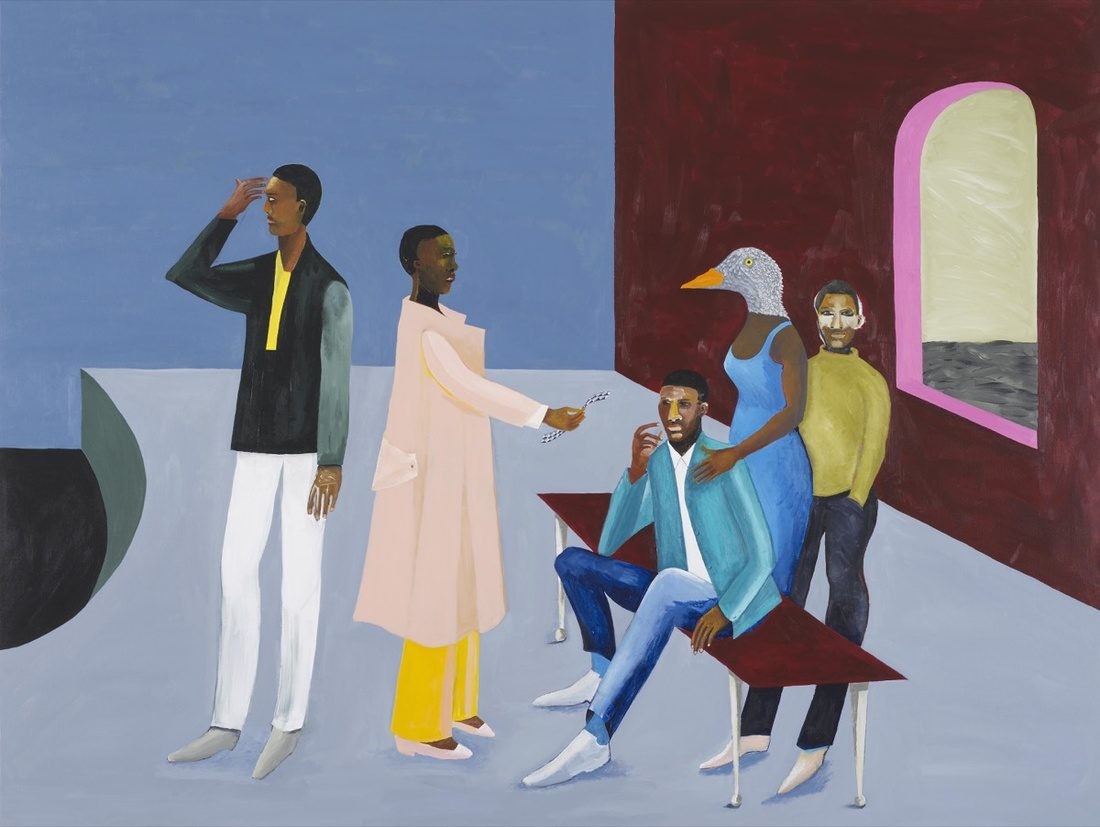Natalie Perkof and Yvonne Vacha on being Black Czech Artists
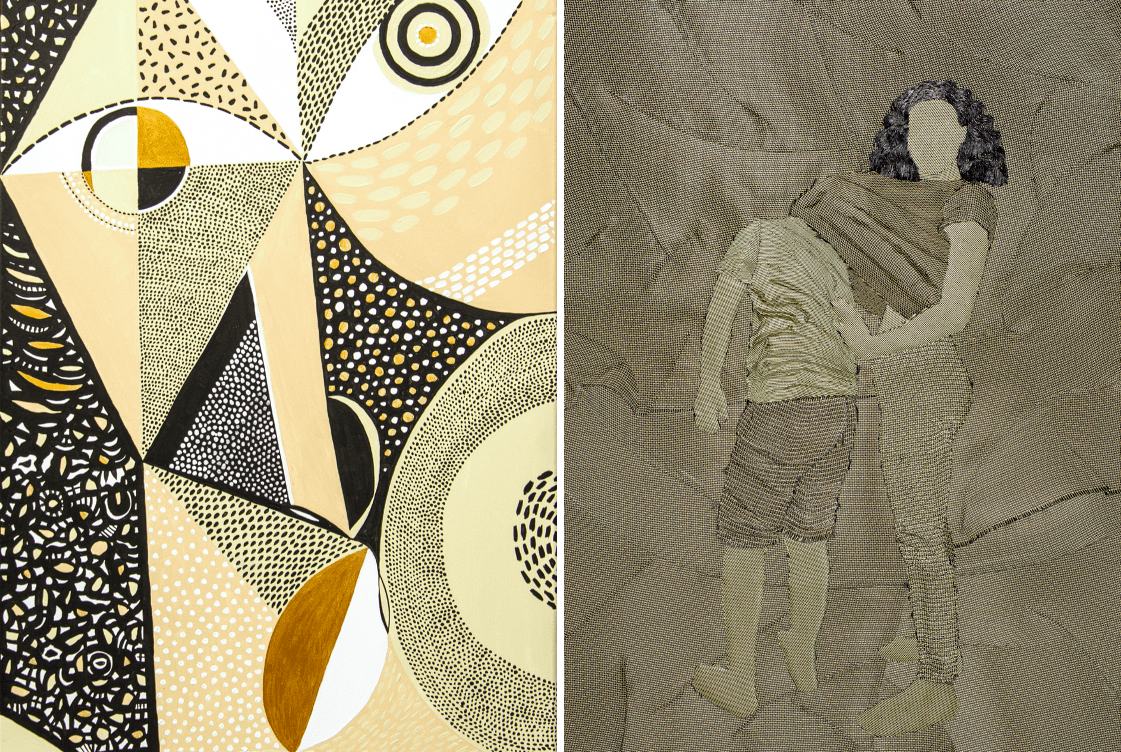
20 July 2022
Magazine C&
Words Yvonne Vacha & Natalie Perkof
6 min read
In a conversation with each other, the two reflect on their experiences as Black artists in the Czech Republic.
First, let's say something about ourselves and what inspired our creative trajectories.
Yvonne Vacha: I was born in Prague to a Czech mother, originally from Moravia, and a father from Senegal. My parents were one of the first mixed couples in the country. I remember how uncomfortable it sometimes was to hear verbal hints about my skin color or my hair on the street or at school. But I was raised to be a diligent student, and among moral values and decency. So maybe that's why I was mostly well-received.
I first visited Africa when I was eight years old. We went to see family in Dakar, who welcomed us. I hoped that I had finally arrived where I belonged, among “my” people. But people shouted “toubab” (which means “whites”) at me and my mom. My disappointment that I was not fully accepted, even there, terrified me. The feeling that I didn't belong anywhere was scary. And I shut myself in.
Over time, I have come to realize that the feeling of home is carried within you. That is how fantasy worlds and dream landscapes, full of safety, began to open up to me and in my work. I could never suppress one part of myself. Today I accept myself as Afropean.
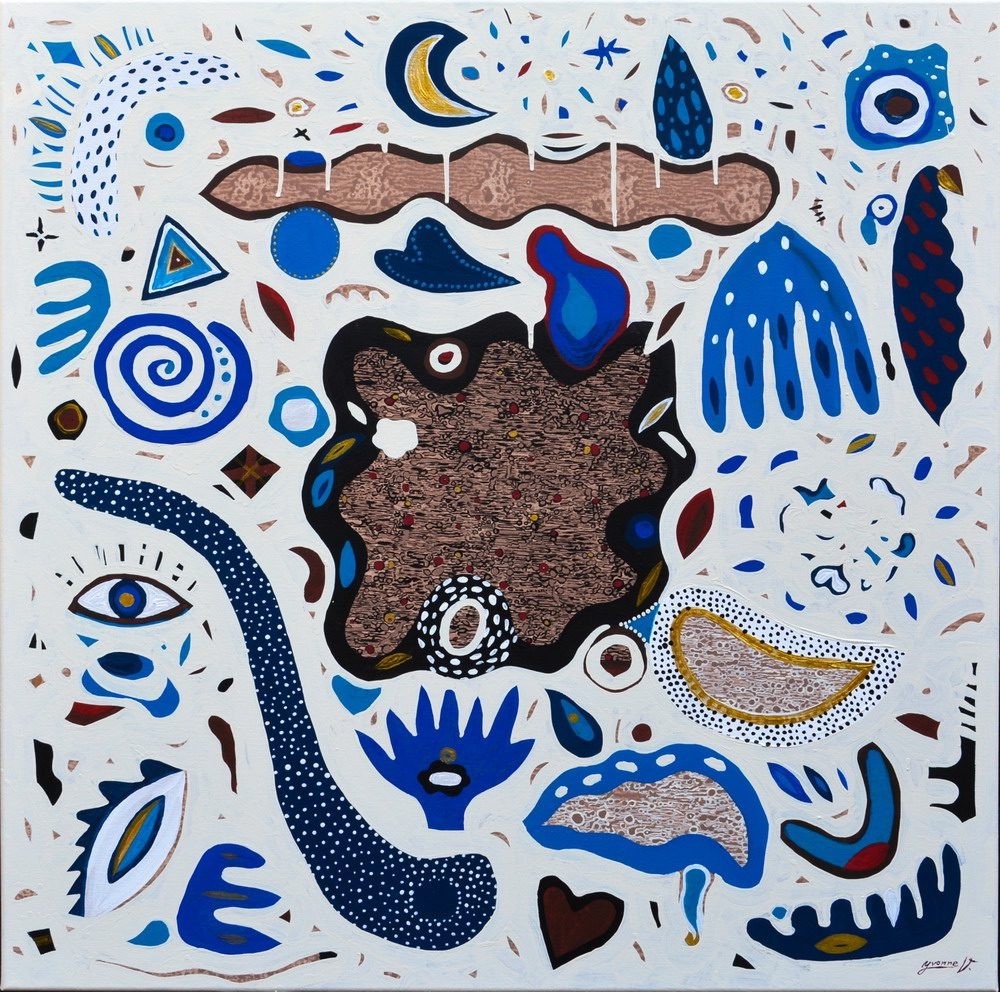
<figcaption> Yvonne Vacha, Mystery Scene, 2020. Courtesy the artist.
Natalie Perkof: I grew up in a small Moravian village. I didn't know my father until I was twenty-four years old. I was raised by my mother, grandmother, and great-grandmother. During my childhood I was completely alone in terms of my appearance. It was a very difficult experience to be the under constant pressure of curious glances, and it forced me to completely ignore my African origins. By a peculiarity of fate, my mother found a husband who was a Czech emigrant in South Africa. My stepfather returned to the Czech Republic to marry her, but his daughter remained in South Africa. When I travelled there for the first time, I felt huge consternation at the deep racism that I had absolutely not experienced in the Czech Republic.
The difference between South Africa and the Czech environment was fundamental. In Europe I was considered a peculiarity, but the attitude of the Czechs was friendly. In South Africa, I felt a deep hostility towards me. I generally felt a total intolerance of groups of people toward other groups. I returned to the Czech Republic completely disappointed and began to deeply appreciate the openness of the people there. I also visited Ghana, where my father was born and raised, and again I came across people who suggested that I was a white woman, a foreigner. I felt as if there really was no place where I belonged – where I would be considered a real part of society.
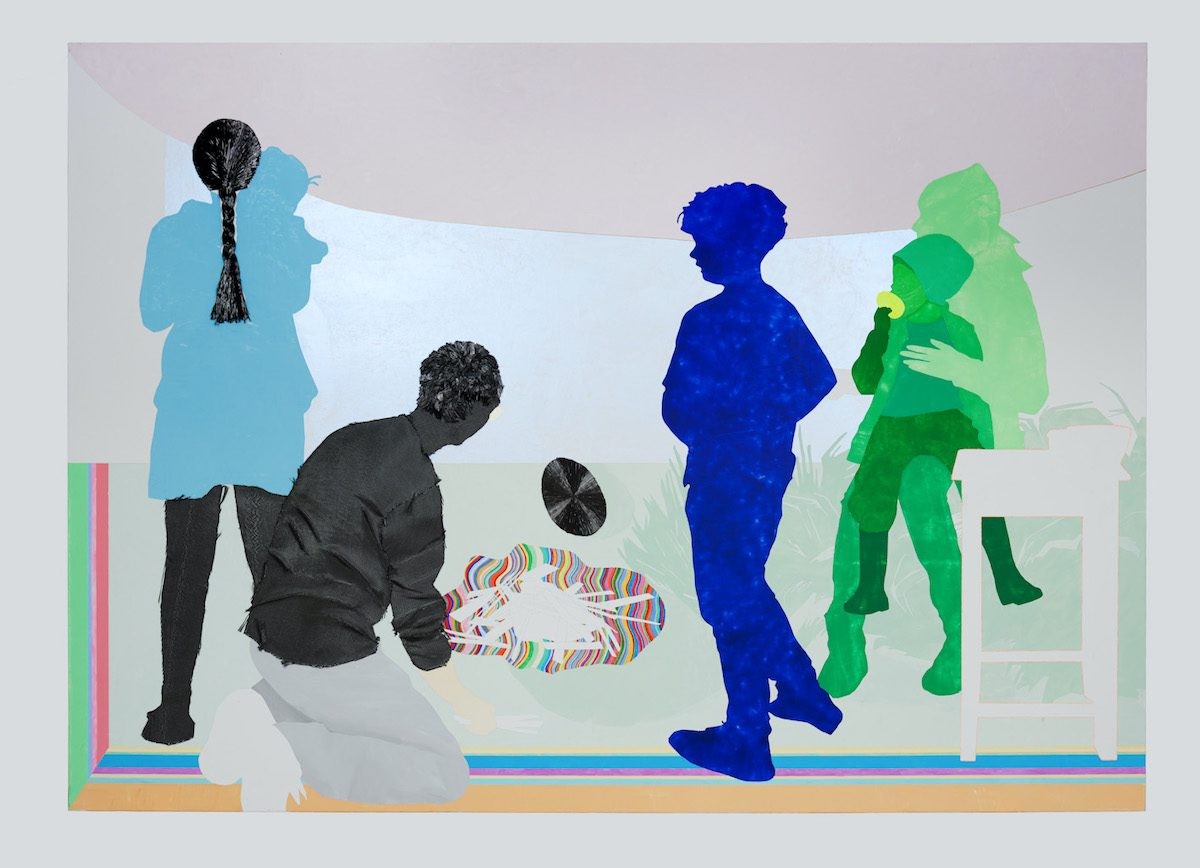
<figcaption> Natalie Perkof, painting. Courtesy the artist.
We’ve asked ourselves how we reflect our origins in our artwork, in our practice.
Yvonne: I went to the Academy of Arts, Architecture and Design in Prague (UMPRUM) and graduated with an MFA degree. Today I'm a painter, I draw illustrations, I make collages and graphics. I create objects, but I also have experience with acting, dance, and performance.
An African influence is quite evident in my work. I use bright acrylic or oil paints, I work with a distinctive morphology, intuitive forms and symbols. My main method during the creative process is introspection, examining positions of inner mysticism and shifting positions of automatism. I often paint spontaneously and let the subconscious express itself immediately. On some days I patiently work through precise details, on others I energetically splash colors on the canvas.
Natalie: In my work, the theme of Blackness keeps coming back to me like a boomerang, forcing me to explore it more and more deeply. When I visited Ghana I admired the amazing textile work, which I found beautiful, fascinating, and strong. I was looking for materials that would refer me to this phenomenon and I found an industrial fabric with a beautiful weave – carbon and carbon-aramid. I use these materials for collages in paintings and for sculptures. The core of my work consists of large-format paintings. But objects made of carbon fibre or natural materials are likewise very present. I also use photography for conceptual installations and get inspired by architecture and design work – I designed a collection of carbon-fibre suitcases for instance.
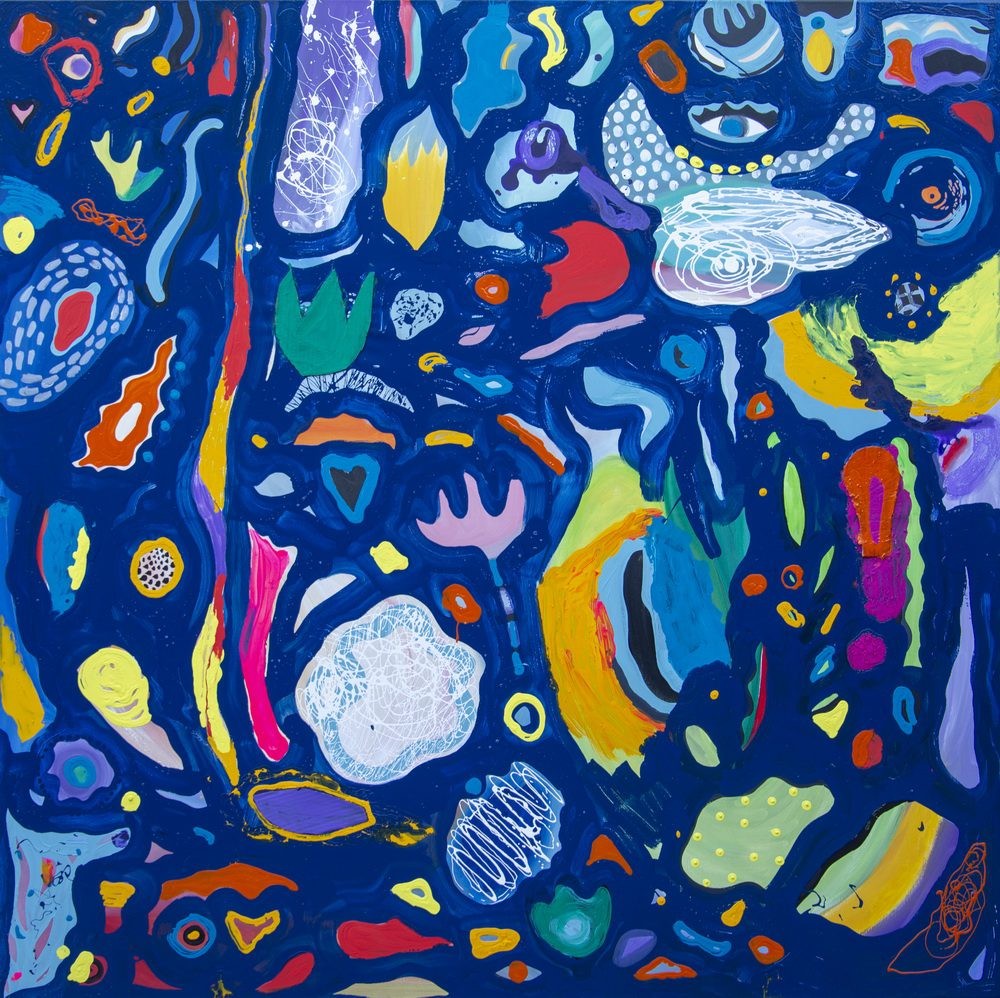
<figcaption> Yvonne Vacha, On the Wave, 2020. Courtesy the artist.
Where else do we find inspiration?
Natalie: Topics come to me step by step. Mostly I do research on current experiences and then reflect on it in my work. I often pay attention to the fact that I was born in a small village and have a very close relationship with nature and organic farming. I'm researching my relationship to plants and soil. And I devote much of my research to the human psyche and female sexuality.
Yvonne: I create according to my current mood – life itself is my inspiration, I perceive art as an integral part of it. I am eclectic with my topics. I try to feel the essence of things and also understand super-sensory phenomena. The main source of my inspiration among others is dance, through which I like to express myself, and music, which I listen to during work.
https://www.youtube.com/watch?v=t_dA3s1QsnM
Let’s share the story of how we met.
Natalie: We met at the MeetFactory space in Prague, in the autumn of 2020, at a residence program. During our work we focused on the topic of Blackness and how each of us perceives it in our lives and environments in the Czech Republic. It was an absolutely wonderful meeting, in which I was able to share my Black experiences for the first time in my life. Yvonne and I each expressed how we experienced our Black lives within the Czech Republic in our paintings.
Yvonne: We had time to share our opinions on and experiences with Blackness in Czechia, which fit into the theme of the whole project, and I think directed both of us to think more about our origins. We made a video together about dancing to the sounds of African music, against the backdrop of African fabrics that fascinate me with their ornaments. I enjoyed working with Natalia, and we stayed in touch.
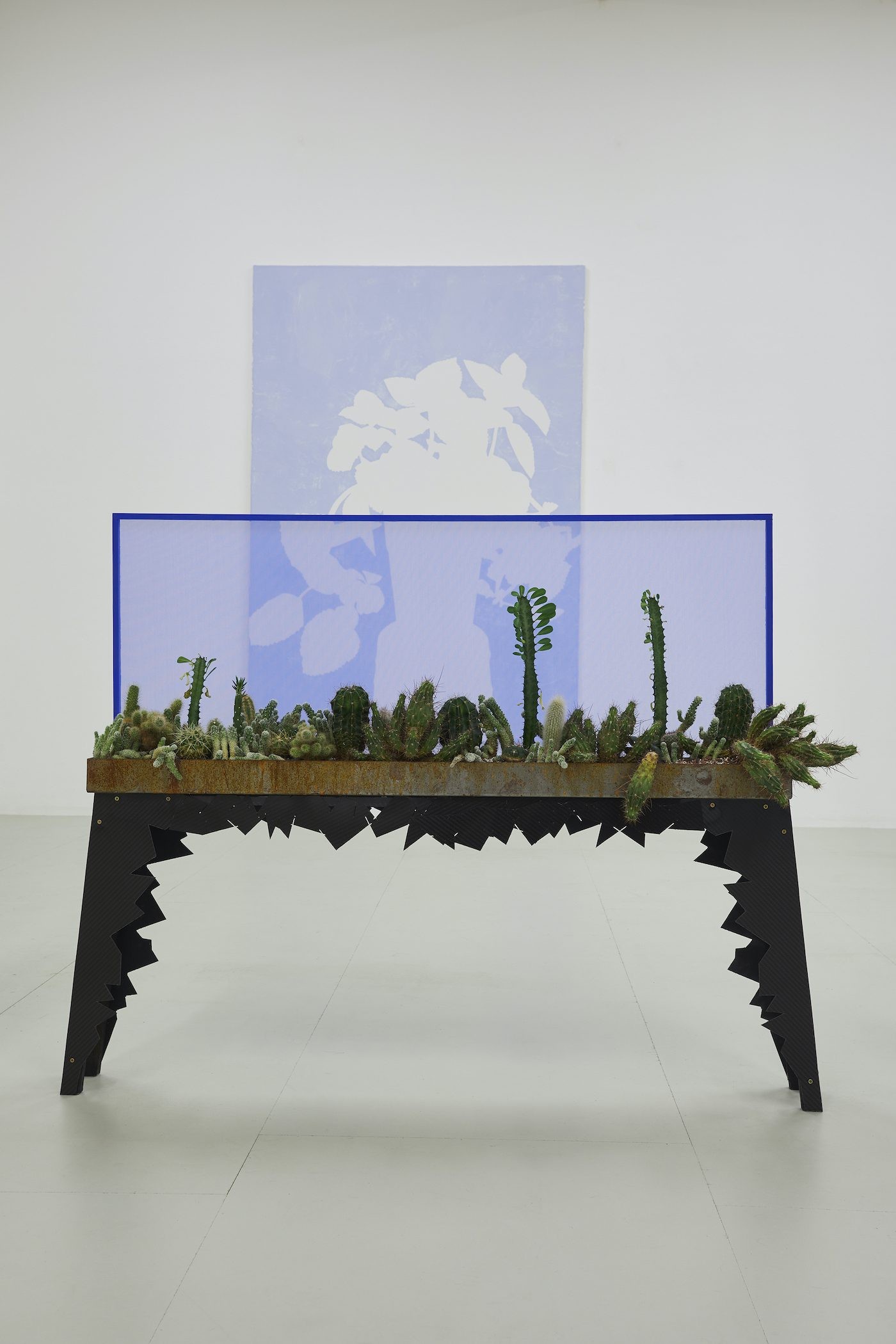
<figcaption> Natalie Perkof, Plant object. Courtesy the artist.
What are our plans for the future?
Yvonne: At present, I explore my own diasporic experience in my creative practice. I am preparing an exhibition of drawings and an installation, in which dreams and stories come to life in my artwork, where other forms of life become guides. Currently I cooperate with the internet galleryVictory Art.
Natalie: I am currently preparing two exhibitions in Prague. The first one is devoted to my research of female sexuality, which is closely related to nature. The second deals with organic farming and our own food self-sufficiency.
Interview by Yvonne Vacha and Natalie Perkof.
from
In Conversation
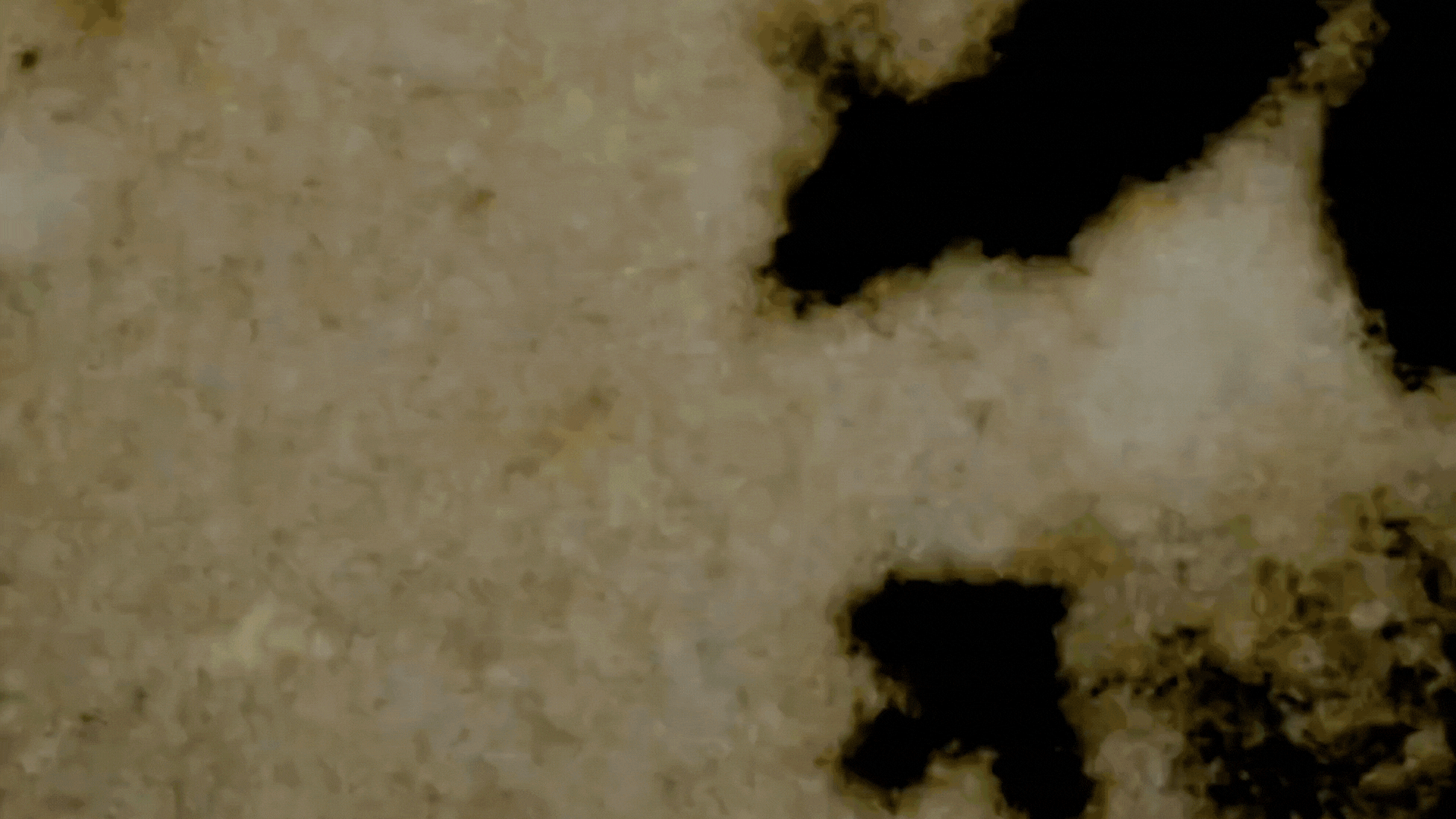
On Ghosts and The Moving Image: Edward George’s Black Atlas
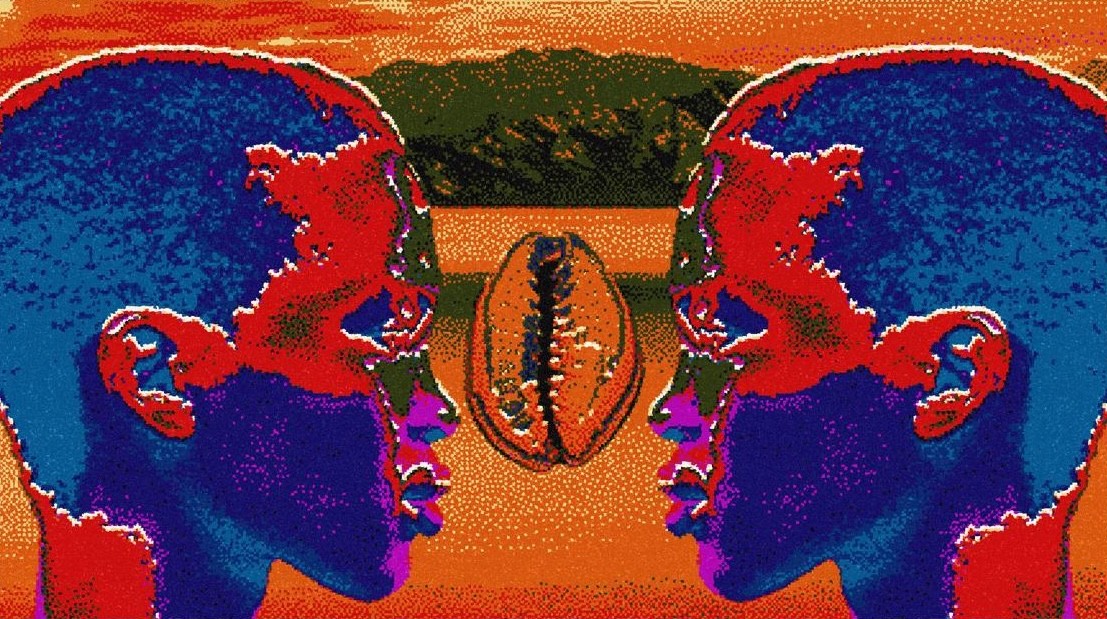
On Exile, Amulets and Circadian Rhythms: Practising Data Healing across Timezones

‘To Treat Process with Care and Intention’: Favour Ritaro Carries Forward Important Curatorial Legacies
from
Identity
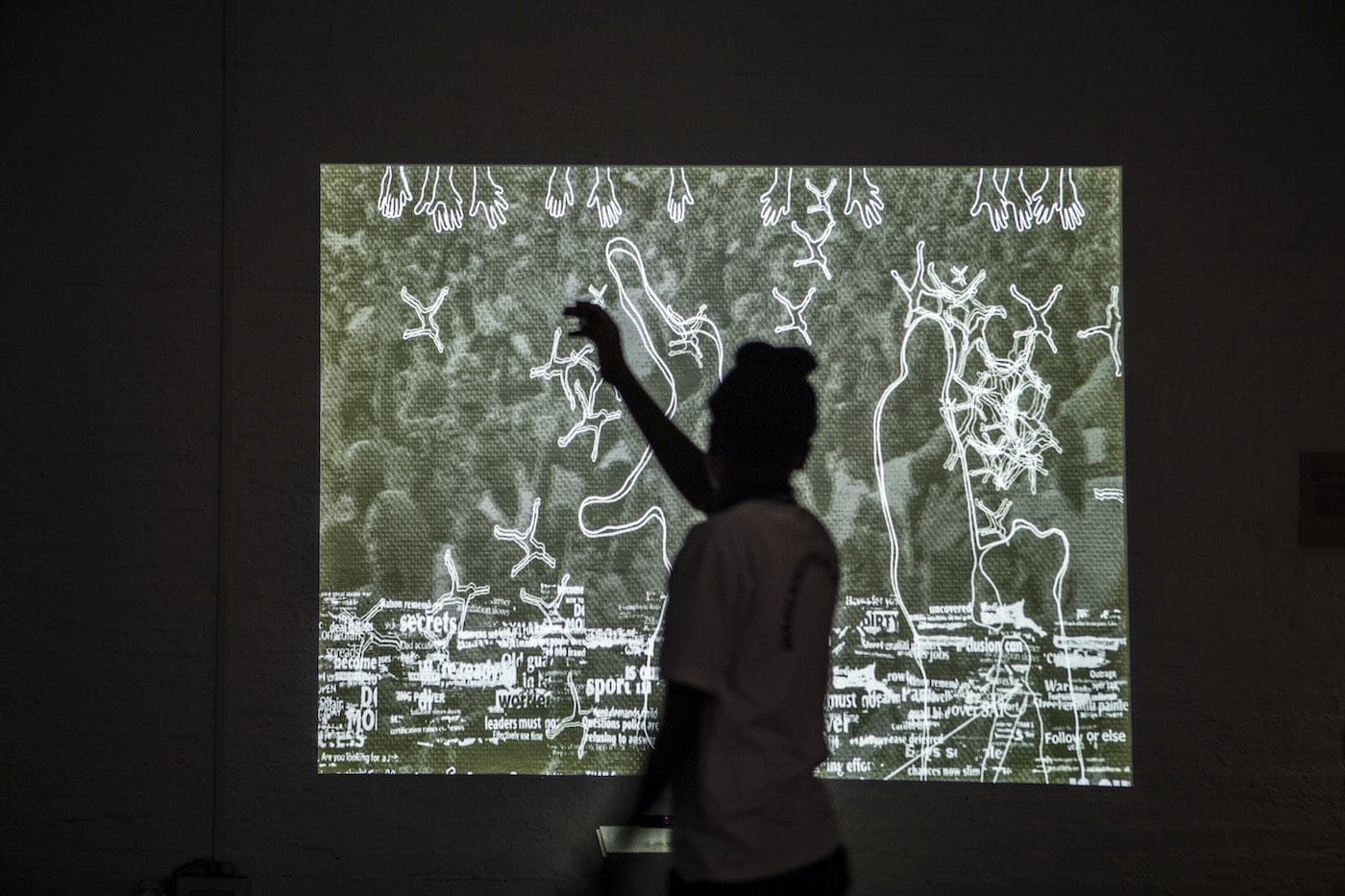
Kombo Chapfika and Uzoma Orji: What Else Can Technology Be?
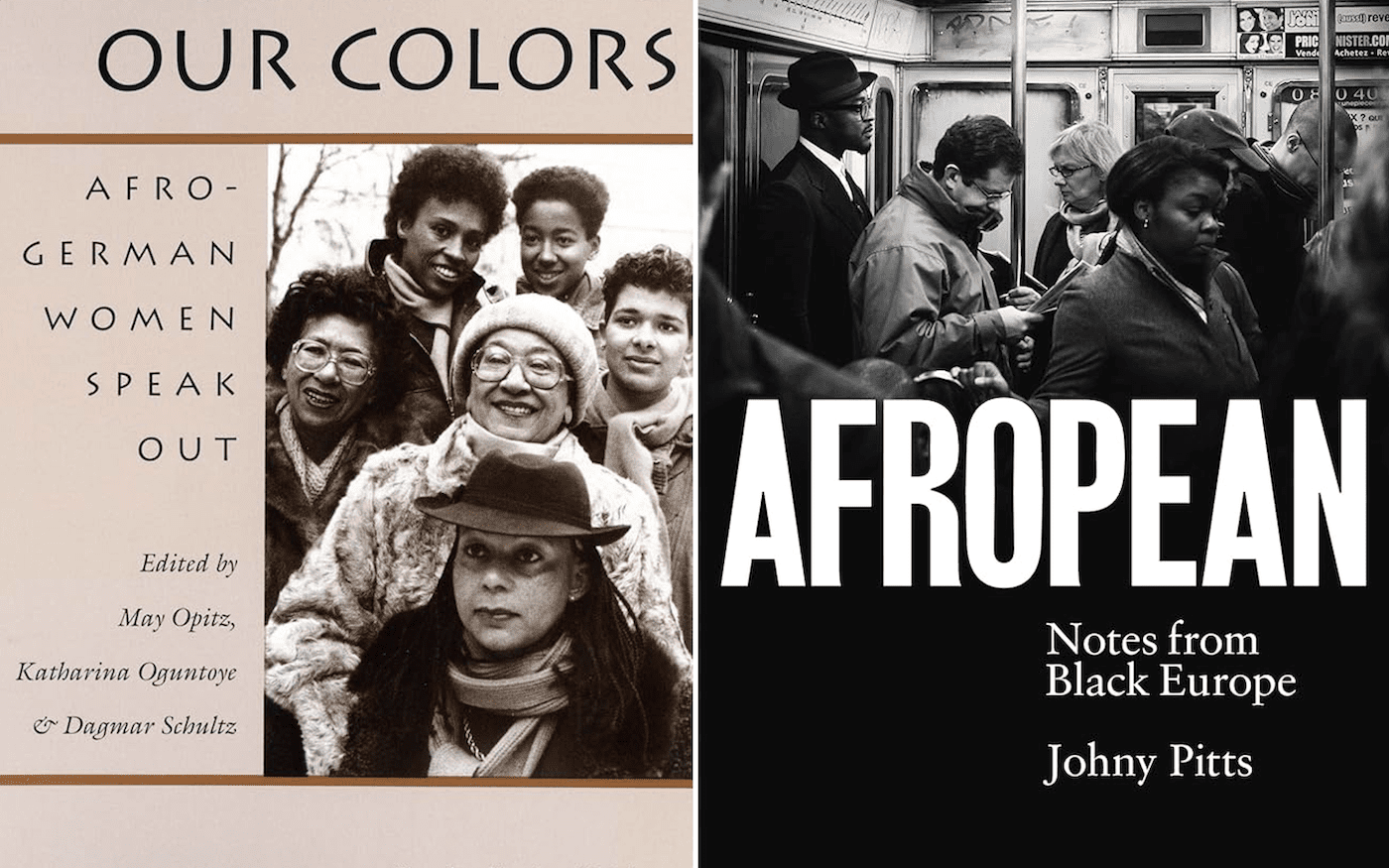
Thinkers and Titles: On Black German Literary Tradition
